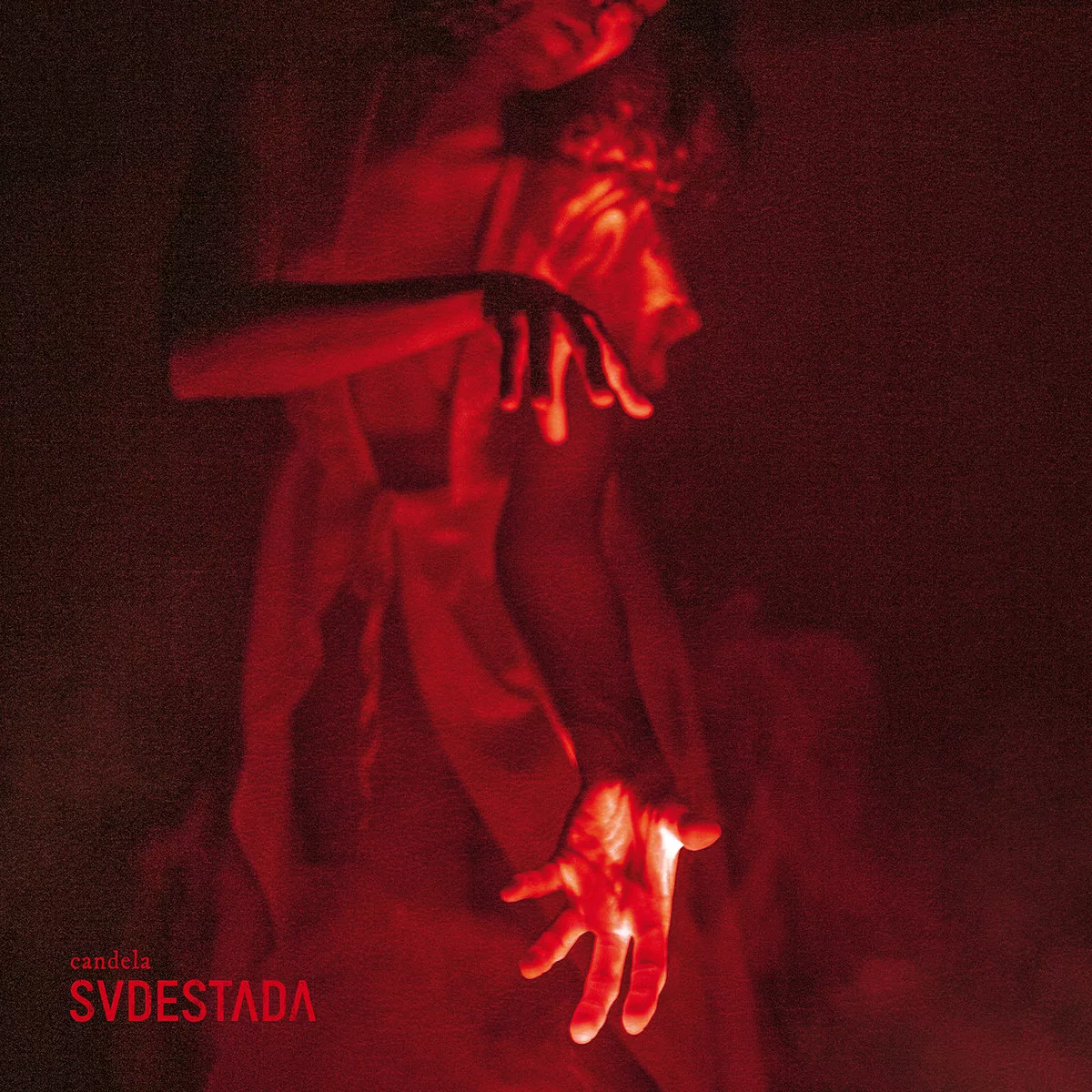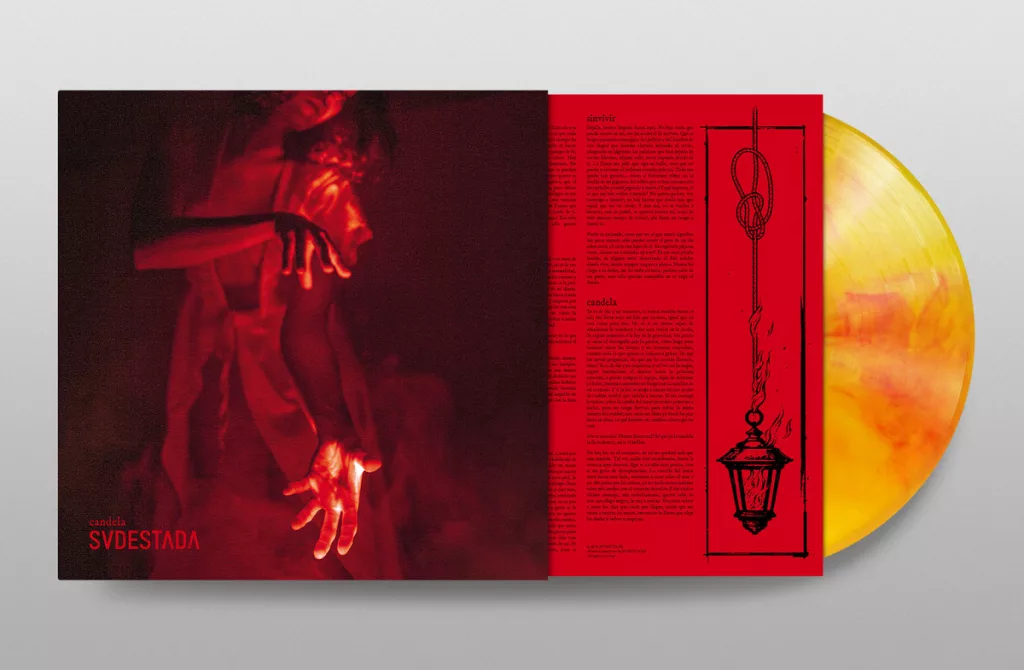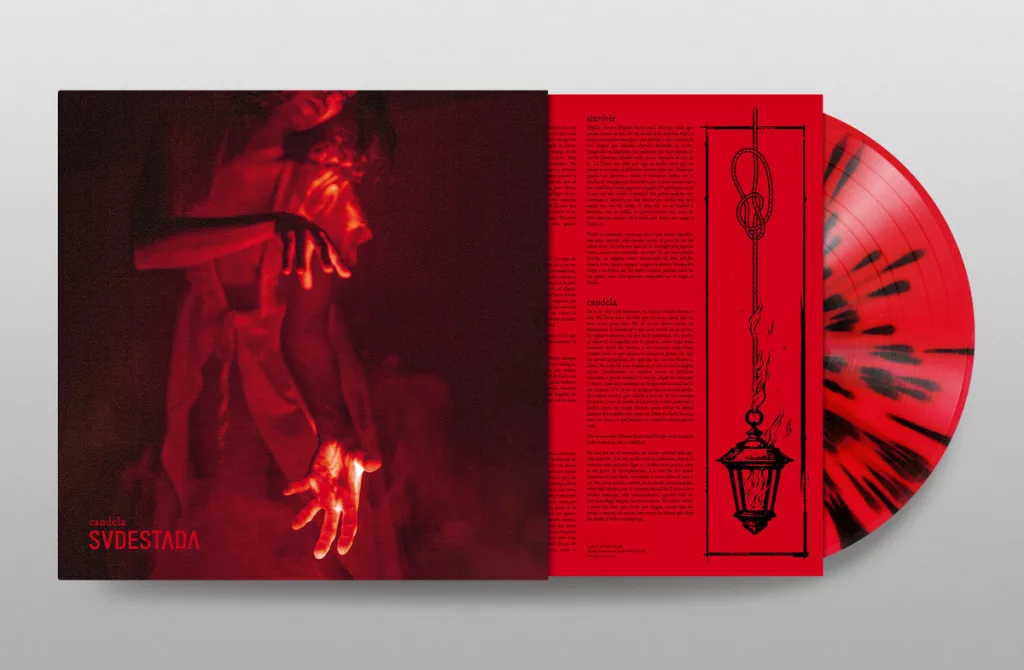Review: Svdestada – Candela

There’s something pleasingly ragged about “Candela”: It doesn’t feel like Svdestada set out to deliver perfection, but rather to bleed something raw through the cracks of genre. This is their third album, and instead of smoothing down their edges to make themselves more palatable, they lean in to the grime, the tremble, the sorrow. What emerges is an album that often works, occasionally stutters, and in its misfires still pulses with enough fervor to pull you in.
From the opening “Nudo,” you’re slapped with urgency. The drums are tense, relentless; the guitars scratch and churn; the vocals don’t politely ask, they bark, howl, and thrust. There is no sense of this being safe. When “Cierzo” kicks in, it’s like being dragged across rough concrete, particles biting. Even where melody peeks out, it’s jagged: a scar rather than a caress. It’s in that tension between the raw crust-punk base and blackened overlays that the album finds its main strength.
One of “Candela’”s strongest moves is its vocal performance, it delivers more than just insults or anguish; there’s texture in the pain, a sense that the suffering is worn not for show but from real cracks in skin and mind. The lyrics are all in Spanish, which adds weight , as you feel the words as guttural or mournful even when you don’t fully understand them. It makes the listening more intimate, more disarming. The drums give that vocal pain room to breathe through the turbulence, grounding the chaos in physicality rather than letting it float off into vague bleakness.
Musically, the record is ambitious in its mix. Most songs do what shorter blackened crust punk tends to do: speed, repetition, release, hit, move on. But the final “Candela,” at almost 12 minutes, is where everything the band has been building up comes to head. It’s sprawling, it pulls back for moments, allows melody or atmosphere (or both) to intrude through the blackened storm, then drags you back into the fray. It’s impressive they held cohesion across that length; it’s also where some of the album’s problems are most exposed.
Because where “Candela “fades a bit is in pacing and dynamics. With such intensity front-loaded, with so little in the way of breathers, the album sometimes becomes exhausting in a way that doesn’t always feel purposeful. There are moments where you want more quiet, more contrast, more space. And Svdestada do flirt with that (especially in the longer piece and some interludes), but they rarely commit. Also, the production is raw in ways that support the feel, but at times it’s almost too muddy: the layers of guitar and feedback sometimes bleed over one another, masking detail; the mix sometimes favors atmosphere over clarity to a fault.
Still, those flaws don’t break the album, they add to its character. “Hilonegro and “Sinvivir” let melody and heaviness dance together nicely, creating moments where the band lets you see what’s under the rage: regret, nostalgia, longing. And even when the record is harsh, there’s an emotional honesty that keeps it from sounding like angry posturing.
In conclusion, “Candela” doesn’t revolutionize blackened crust or blackened hardcore, but it doesn’t need to. It drives hard, it burns, it centers on human wreckage rather than hollow stylings. It is messy, occasionally overlong, occasionally want of space; but it’s earnest, fierce, and often thrilling. If you like your extreme music with claws and scars, this is a record worth sitting through.

